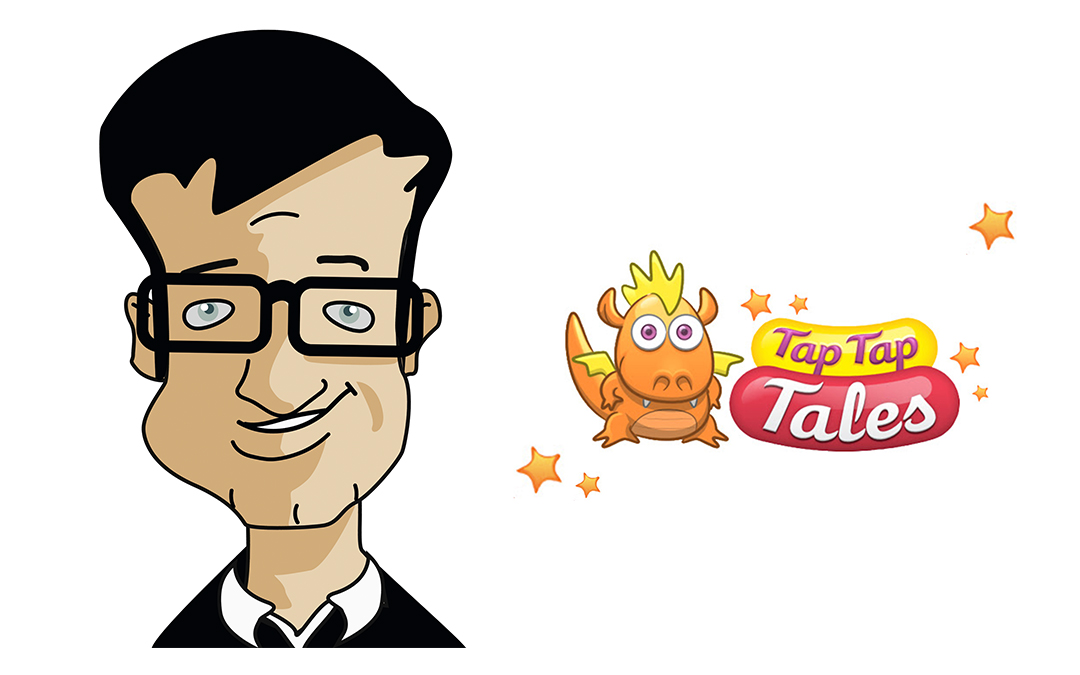Xavi Prats, Tap Tap Tales: “Telecoming enables us to operate in new territories”.
Today at Telecoming’s blog, we are happy to interview Xavi Prats, Tap Tap Tales founder. Its company generates educational contents for children. And they are fantastic! We work with them for a while, and they have become a great partner supporting our strategy.

New generations are now growing up in a digital world. How do you feel about the use of new technologies in childhood?
Very often, debates arise about children’s use of technology because we might think that it does not address its purpose and content.
We should actually question ourselves on whether it is good that children continue to learn in the same old way and with the same methodologies than 40 years ago. In contrast, when they walk out of their classrooms, they find a world full of technology.
Sadly, we are facing a pandemic that has forced us to shut down schools and spend lockdown time at home. Then we realized how important it was for our entire educative system to be technologically ready and kids used to new technologies.
I believe that new technologies in children are very helpful for society if it is prepared to provide proper pedagogy on their use and consumption.
If we discuss the use of technology on children as a leisure activity, then it can be very beneficial if the content and time spent are right. It is a reasonable rule that we can apply to any activity, whether it is playing with a Smartphone, watching TV or reading a book: if the content is not appropriate for the child’s age, regardless of the medium, it will be harmful.
Application stores undertake an exhaustive analysis of the content to confirm that it is age-appropriate. This is what parents should be aware of before downloading anything for their children.
How was Tap Tap Tales born?
Tap Tap Tales was born in 2014 as a result of the need to get adapted to technological changes.
I had been distributing multimedia materials for children since 1995 with the first CDRom launched in Spain by Dorling Kindersley publishing house and the BBC. These products were the beginning of children’s use of computers for learning and entertainment.
The arrival of smartphones and tablets resulted in the fast decline of physical media content, so we decided to create Tap Tap Tales, joining our experience in children’s content with the technical capacity to develop digital content.
How do you create a child-oriented service? What aspects do you take into consideration?
We have a vast experience with children’s content, and we are continuously monitoring their behaviour (“user experience”) with our Apps.
Children from 3 to 8 years old, who are our users, are a particularly challenging target because of their limited attention span and their need to keep making discoveries.
When we work on the development of an App, we take into account a range of premises:
– The App must have an actual design; it is not just a list of activities with no sense of order or direction. It is rather about delivering a story that allows children to have a sense of belonging and to move forward through it.
– The content must have a relation with a brand or license which the child can recognize.
– The activities and difficulty should be suited to the user’s level, whether they are 4 or 7 years old, to avoid frustration or boredom.
– The child must be able to solve each activity in no more than 90 seconds, so activities are fast and varied.
And finally, we always review the children’s behaviour before publishing a new app.
Do you believe that providing licensed digital content is a competitive advantage? Why?
Nowadays licensing is a differentiating asset in any product category. The success of a brand or product is always connected to its identification and promotion.
When a brand is supported by hundreds of manufacturers of a variety of products such as toys, food, textiles, television, video games, etc. and they all work on promoting their product, this brand’s visibility is amplified, thus generating significantly more demand.
Children are the most relatable audience for licenses. An online product such as Apps, only digitally present with visibility limited to an icon, should be very quickly identifiable for children to be their favourite choice to download among hundreds of thousands of Apps.
The value of the license is what we need to make children choose our service.
How does Telecoming help you monetize your content?
Telecoming enables us to operate in territories and channels that we could not access otherwise, thanks to its technology and knowledge.
The only possibility we have to reach children in many territories is through local operators or platforms that can provide an alternative system to Google or Apple. All these platforms have different implementing systems that require technical adjustments provided by Telecoming. We would not be able to offer our content to these users or territories without them.
The way kids learn is changing at the time new technologies are improving. At Telecoming, we will continue our commitment to digital edutainment services for the coming generations!
